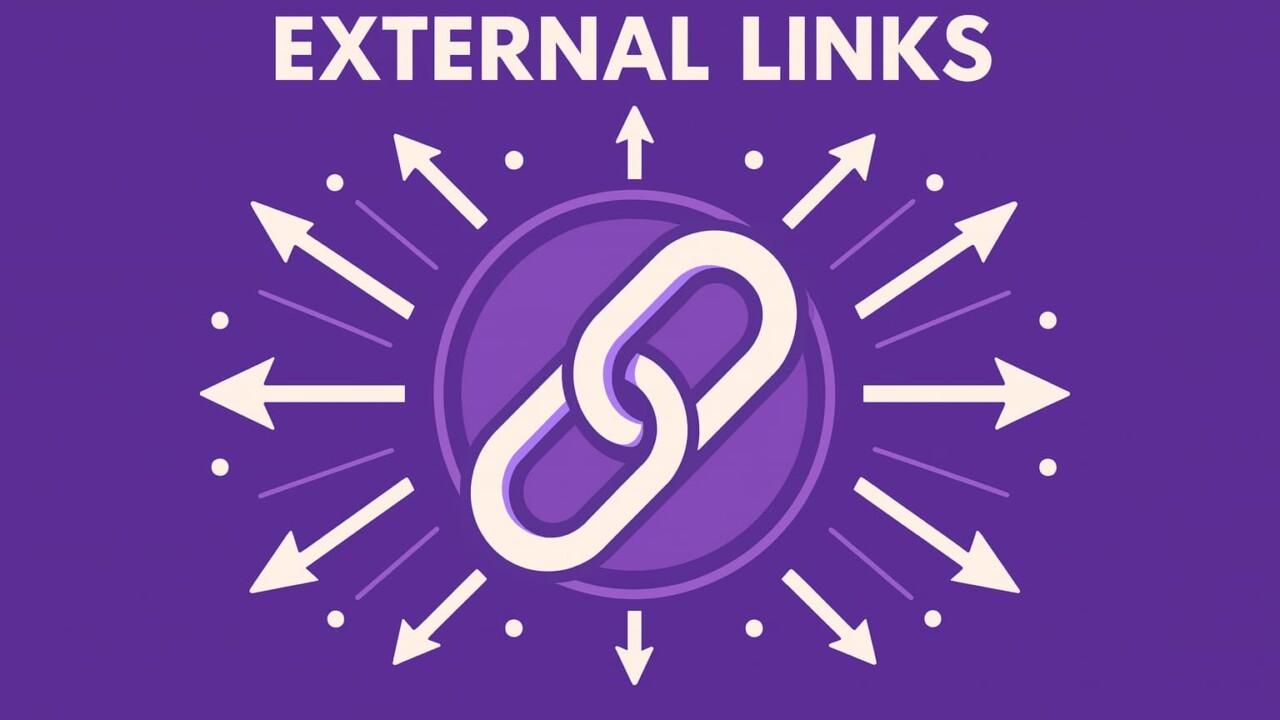What is an External Link?
An external link is a hyperlink that points to a website or domain outside of the current one.
However, the term can be used in two ways:
- Links on your site to an external site.
- Links from an external site to yours, also known as backlinks.
For instance, you can create an external link to another site, which becomes a backlink (also an external link) to that site.
Importance of External Links
They are connections among components in the vast web. They bring many benefits to websites and their audiences in subtle yet powerful ways.
- Credibility and Trust: Linking to reputable sources bolsters your content’s authenticity and fosters reader trust.
- Referral Traffic: External links can drive curious readers from one site to another, expanding visibility and audience reach.
- SEO Benefits: Search engines consider external links in their ranking algorithms. They act as endorsements, typically helping site traffic. However, we don’t recommend spamming backlinks to your site to boost SEO. Earn them naturally!
- Enhanced User Experience: Providing additional resources via external links offers readers a richer and more comprehensive browsing experience.
How to Qualify Links for Google
When informing Google about the nature of your links, there are a couple of attributes to consider. These qualifiers help search engines understand the relationship between your content and the linked content, which in turn affects how they interpret the links. This is important so they don’t think you’re paying for or using other link spam techniques.
Let’s examine how you can effectively qualify your links for Google:
- Rel=”nofollow” – If you don’t want to vouch for a linked site or if it’s a user-generated link (like in comments), use the nofollow attribute. It tells search engines not to follow the link or pass any link equity through it.
- Rel=”sponsored” – Use this attribute for links that are advertisements, sponsorships, or other compensation agreements. It tells Google that the link was placed as part of an advertisement or sponsorship. This is essential so they don’t think your advertisers are paying for links, which is against guidelines.
- Rel=”ugc” – Standing for “User Generated Content”, this attribute is meant for links within user-generated content, such as comments and forum posts.
- Combining Link Attributes – Google understands combined link attributes. For example,
rel="nofollow sponsored"is a valid attribute that can be used for sponsored content where you also don’t want to pass link equity.
Properly marking your links ensures transparency with Google, maintaining your site’s credibility and integrity. It also provides clarity to readers and other webmasters about the nature of your links, fostering trust and openness in the digital realm.
Bottom Line
External links are like the roads of the internet, connecting various sites and creating a more cohesive web experience. They’re essential for credibility, user experience, and SEO.




